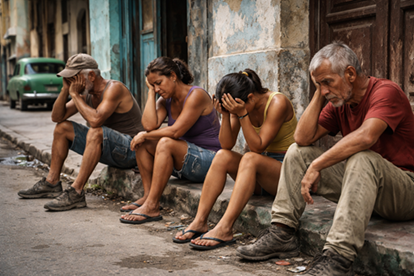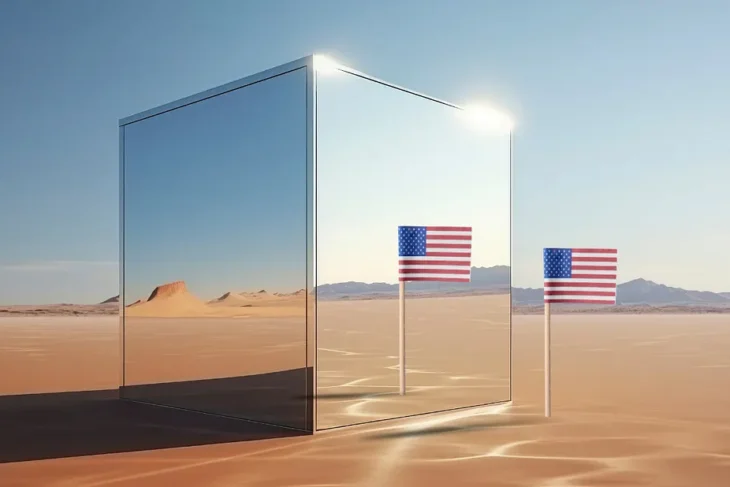
In recent weeks CARICOM held a summit at which the regional body once again expressed concern over the situation in Haiti. This concern has been longstanding as issues in Haiti invariably affect the rest of the region, among them the growing regional trafficking in arms, the increase in the drugs trade and the slow, steady increase in illegal migration of Haitians who seek to escape their homeland.
The concern expressed by CARICOM did not end there. In a communique, the organisation stated its hope and intentions to take a more hands-on approach to tackle the issues which seem to never end in Haiti.
This communique comes as the international community begin to visibly wash their hands of all the traumas they find in Haiti. The United Nations (UN) has long abandoned Haiti, providing little but lip service for the past decade. The Organization of American States (OAS), long a bastion of regional intervention to “stabilise” nations, in a recent meeting admitted it had failed in Haiti and would begin to scale back and adjust its tactics for bringing stability to the French-speaking country.
The international community have spent much time recently, as seen by the OAS and UN, doing introspection on their failures in Haiti, asking why and in some cases being honest about the reasons for their failures. They speak of turning a blind eye to corruption, aiding what turned out to be terrible leaders who were despised by the people and so on.
Nowhere in these documents, though, do they acknowledge the true issue at hand — that is the sins of the international community when it comes to Haiti.
Nowhere do they speak of the US occupying Haiti for decades, literally emptying its central bank of all funds in the process.
No mention is made of the US/French/Canadian coup of 2004 that removed the last popularly elected and functional government. Nothing is said of the destruction caused by UN “peacekeepers” who, after the earthquake, raped scores of girls — girls who were trafficked as prostitutes — and infected the nation’s waterways with cholera and, of course, they also make no mention of the coerced payment Hait made to France a few years after winning their independence from the French colonisers.
The role of the international community, specifically the global north countries and the old colonial powers, in destroying Haiti and making it what it is today betrays the fact that these institutions only exist to serve those former colonial powers and that they really don’t care about the damage they are still carrying out in Haiti.
It is obvious that Haiti has been and continues to be damaged by the intervention of foreign powers. It is also obvious that the region as a whole suffers from this. All of the Caribbean, from Venezuela to Bermuda on the outskirts, suffer because of the foreign-inspired destabilisation project that has been carried out in Haiti.
Yes, they need to leave, and never return while also paying restitution but that is not enough as Haiti will need assistance to rebuild. CARICOM has offered its assistance, but history has shown us that CARICOM is not a serious entity when it comes to this and other issues. CARICOM continues to say the right things, but its actions are found to be wanting.
The question of why this bloc of 14 nations — including Haiti — isn’t acting is an interesting, if all too familiar tale. It is a tale of small countries being located next to a behemoth. It is a saga of differing views on the world and politics which enables a divide and rule mindset. It is also a tale of infiltration and subversion to the point that leaders openly question not only the usefulness of the current bloc, but the necessity of having one at all.
CARICOM has had no real, tangible role in the security of Haiti because, in a nutshell, our leaders are terrified of the consequences of taking not only that action but the logical actions that we would need to take to ensure that Haiti is stable. They have not acted simply because they fear the destruction which has haunted Haiti will be visited upon them.
That line of thinking is understandable, if you don’t think too long about it or if you are a child. Yes, there is a real risk that intervention in Haiti and restoring that country to its people could result in the US/France/Canada all ganging up and destroying us but that is a risk, a potential which has not materialised.
What is a material fact is that not acting has left Haiti in a worse state today than in 2004 and the Caribbean is less secure as Haiti — a country which is ruled by oligarchs and drug dealers through US backing — is a primary node for drug importation to the US and gun exports from the region.
Clearly not acting is posing a more direct risk to life and regional stability than acting. It is an excuse but not a very good one for not acting. It is akin to allowing the wolf to devour your neighbour in the hope that it will leave. It will not and will end with you being eaten, your cries being heard by no one.
CARICOM’s statement of wishing to have a hands-on approach to fixing Haiti is good, but it raises the question of how this will be done. How can we ensure that this project remains a CARICOM one alone with no other help, however nice it sounds, and what would it mean?
The lowest-hanging fruit is the army. Haiti is currently re-constituting its army which was dissolved following decades of coups. Instead of having them trained in Panama, El Salvador or Brazil, they could be trained in Jamaica, Guyana, Trinidad, etc nations which, unlike the other countries, have never had coups and whose armies appreciate the liberal line between the army and politics.
We, the bloc in the hemisphere that boasts of our long history of peaceful transfer of power following elections while having a robust climate of political debate — again both liberal ideals that the great powers who have destroyed Haiti preach — could be the ones that train their politicians in how to operate a political system.
This, however, highlights the real reason that CARICOM has done nothing of substance to fix Haiti. To do such things, to give the Haitian people democracy, true democracy, questions would be asked in the various countries as to why those things aren’t happening here. Questions of healthcare, education and all others would have to be addressed and that would, in many cases, mean ending the gravy train.
Haiti must be fixed, it cannot be left to those who have destroyed it to fix it, and that therefore leaves us, it’s regional partners and brethren. We must save Haiti, there is no longer any debate over that. For a whole host of reasons CARICOM intervention by itself, void of any other body, will save Haiti, and in saving Haiti from the criminals that currently run it and giving power back to the masses we lay the groundwork for real change in the CARICOM countries.
.



